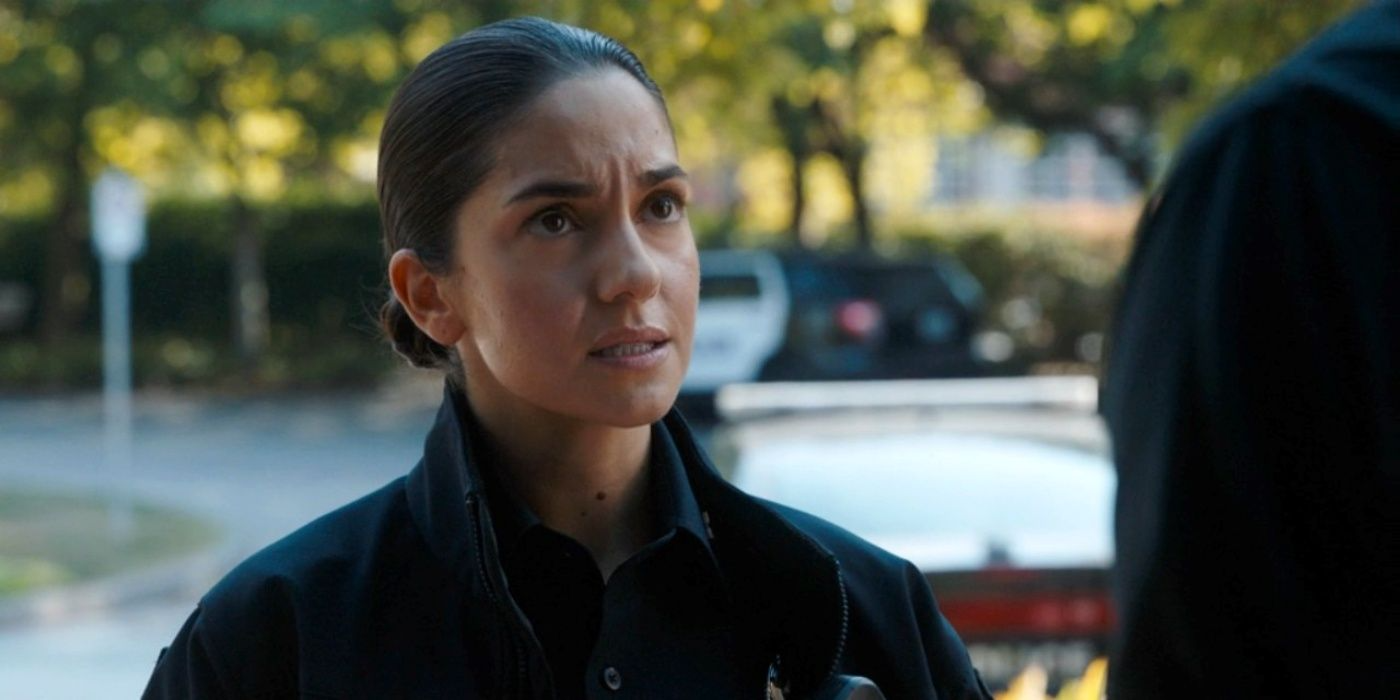
While Tracker is driven by the excitement of the chase, it’s the people that Colter Shaw finds that give the series its emotional and moral power. Whether it’s a runaway teenager, a wrongly accused suspect, or a grieving family member, every case is anchored in human complexity. What sets Tracker apart isn’t just how Shaw solves mysteries—but how he connects with people. This article explores how empathy and ethics shape Colter’s journey, and how Tracker uses each encounter to reveal something deeper about justice, trauma, and the human condition.
Every Case Is Personal
Colter Shaw doesn’t approach his work like a cold professional ticking off objectives. He listens, observes, and reacts to each case as a human being first. This emotional engagement is what makes him compelling—and vulnerable.
Unlike traditional detectives who maintain distance, Shaw often gets entangled in the lives of the people he helps. He bonds with parents, comforts victims, and even protects those who may not fully deserve it. This emotional permeability isn’t a weakness—it’s his guiding compass.
By choosing to see each missing person not as a statistic but as a life worth understanding, Colter reveals that empathy isn’t just helpful in solving cases—it’s essential.
Listening as an Investigative Tool
Shaw’s most powerful skill isn’t tracking footprints or decoding digital clues—it’s listening. He listens to grief-stricken relatives, suspicious locals, frightened children, and untrusting authorities. Through this patient attention, he extracts truths that others miss.
In one episode, a case hinges not on evidence, but on a simple detail overheard during a quiet conversation. Colter’s success lies in his ability to recognize that people often tell you more between the lines than through direct statements.
This makes empathy a tool, not just a trait. By making people feel heard, Colter earns their trust—and often, the final piece of the puzzle.
Moral Ambiguity and Ethical Choices
Not all the people Colter finds are innocent. Some are running for good reason—others, for darker ones. Some lie to protect loved ones. Others manipulate sympathy to escape consequences. Tracker doesn’t give Colter easy choices, and that’s where the show thrives.
In many episodes, Shaw is forced to make ethical decisions with no perfect solution. Does he protect a runaway mother fleeing an abusive ex, even if she’s broken custody laws? Does he expose a community leader’s crimes if it means destroying the town’s fragile trust?
These dilemmas reflect real-world complexity. And they make Colter’s empathy not just emotional, but moral—an anchor in a sea of uncertainty.
The Weight of Bearing Witness

Colter doesn’t just find people—he witnesses their suffering. He sees the aftermath of domestic violence, systemic neglect, and personal loss. This emotional exposure takes a toll.
Tracker doesn’t ignore that toll. Episodes often end with Colter alone, reflecting—not just on the case, but on the emotional weight he carries. He may leave town, but the people he’s helped stay with him. Their stories become part of his journey.
This emotional continuity sets Tracker apart from other procedurals. It acknowledges that caring deeply is not without consequence, and that bearing witness is its own kind of burden.
Empathy vs. Objectivity
While empathy is Colter’s strength, it sometimes threatens his objectivity. There are moments when he misjudges a situation because of emotional bias—believing too quickly in someone’s innocence or taking risks based on gut feeling.
These mistakes humanize him. They show that empathy, while powerful, can also be a double-edged sword. The show respects this complexity. It never suggests that emotion should be abandoned—it suggests it must be tempered with discernment.
This dynamic tension adds dramatic depth and makes each case more than a puzzle—it becomes a moral test.
Humanizing the Missing and the Lost
One of Tracker’s most important contributions is how it humanizes the missing. Too often in real life, missing persons cases are reduced to headlines, statistics, or media spectacles. Tracker reverses this erasure.
Each person Colter searches for is given backstory, voice, and meaning. We learn what they love, what they fear, and why they ran. They aren’t defined by their absence—they are restored to full humanity, even before they’re found.
This focus turns each episode into a meditation on what it means to be seen, especially for those who have fallen through the cracks of society.
Empathy as Resistance
In today’s cynical media landscape, empathy can feel radical. Tracker positions empathy not as sentimentality, but as resistance—a pushback against indifference, institutions, and systems that fail the vulnerable.
Colter’s choices reflect this resistance. He fights for those the system ignores. He questions official narratives. He gives space to people who aren’t usually given a voice. In doing so, he enacts a quieter form of justice—one rooted in understanding rather than punishment.
This moral posture gives Tracker a distinctive tone—serious but compassionate, dramatic but humane.
The Cumulative Effect of Compassion
Unlike many procedurals where each episode resets, Tracker allows the emotional consequences to accumulate. Colter changes. He becomes more cautious, more reflective, sometimes more conflicted. Empathy is not a fixed trait—it evolves through pain, failure, and hope.
By the midpoint of the series, we sense that Colter’s mission is about more than rewards. It’s about meaning. He’s chasing something within himself, and every person he helps brings him a little closer to understanding who he is—and who he wants to become.
Conclusion
In Tracker, the people Colter Shaw finds are more than missing—they are mirrors. They reflect his values, his wounds, and his evolution. Through each encounter, the series builds a powerful argument: that justice without empathy is hollow, and empathy without action is incomplete.
Colter’s journey is a reminder that to truly find someone, you must first see them—fully, vulnerably, and without judgment. In a world that too often overlooks the lost, Tracker chooses to care. And in doing so, it redefines what it means to pursue truth—not just with your mind, but with your heart.
